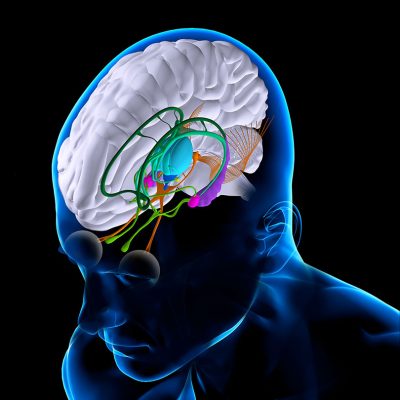A new study has found that individuals with genital herpes (HSV-2) have a thinner cortex, which could significantly increase the risk of Alzheimer’s disease. Approximately three-quarters of the world’s population are infected with the herpes simplex virus type 1 (HSV-1), which can cause unpleasant blisters in the mouth. The infection rate with the herpes simplex virus type 2 (HSV-2), which primarily affects the genital area, is significantly lower, affecting only about one-fifth of people. Both viruses cannot be cured. In 2018, a study published in the journal Frontiers in Aging Neuroscience provided evidence that HSV-1 could promote the development of Alzheimer’s disease. Researchers at Columbia University, led by Jose Gutierrez, have now published a correlation study in the Journal of Neuroscience, which investigated whether there is a link between HSV-2 infection and the risk of Alzheimer’s disease.
The researchers examined the brains of 455 people with an average age of 70 using magnetic resonance imaging and analyzed blood samples. The results showed that people who tested positive for the herpes simplex virus type 2 (HSV-2) had a thinner cortex on average than people without the virus. This correlation remained even after adjusting for variables such as education level and smoking behavior. According to the authors, the results indicate accelerated brain aging, which may increase the risk of dementia or Alzheimer’s disease. However, the study only shows a correlation between the amount of virus and brain substance. It does not show whether HSV-2 actually causes dementia. Other studies have shown that infections, including HSV-2, can have an impact on the brain. Infected individuals, for example, perform worse in cognitive tests, according to the study. Additionally, a study published in the journal Science found that HSV-1 promotes the formation of beta-amyloid plaques, which are also considered an indicator of Alzheimer’s disease.
In conclusion, the study suggests that individuals with HSV-2 may have an increased risk of Alzheimer’s disease due to a thinner cortex. However, further research is needed to determine whether HSV-2 actually causes dementia. The study also highlights the potential impact of infections on the brain and the importance of further research in this area.










